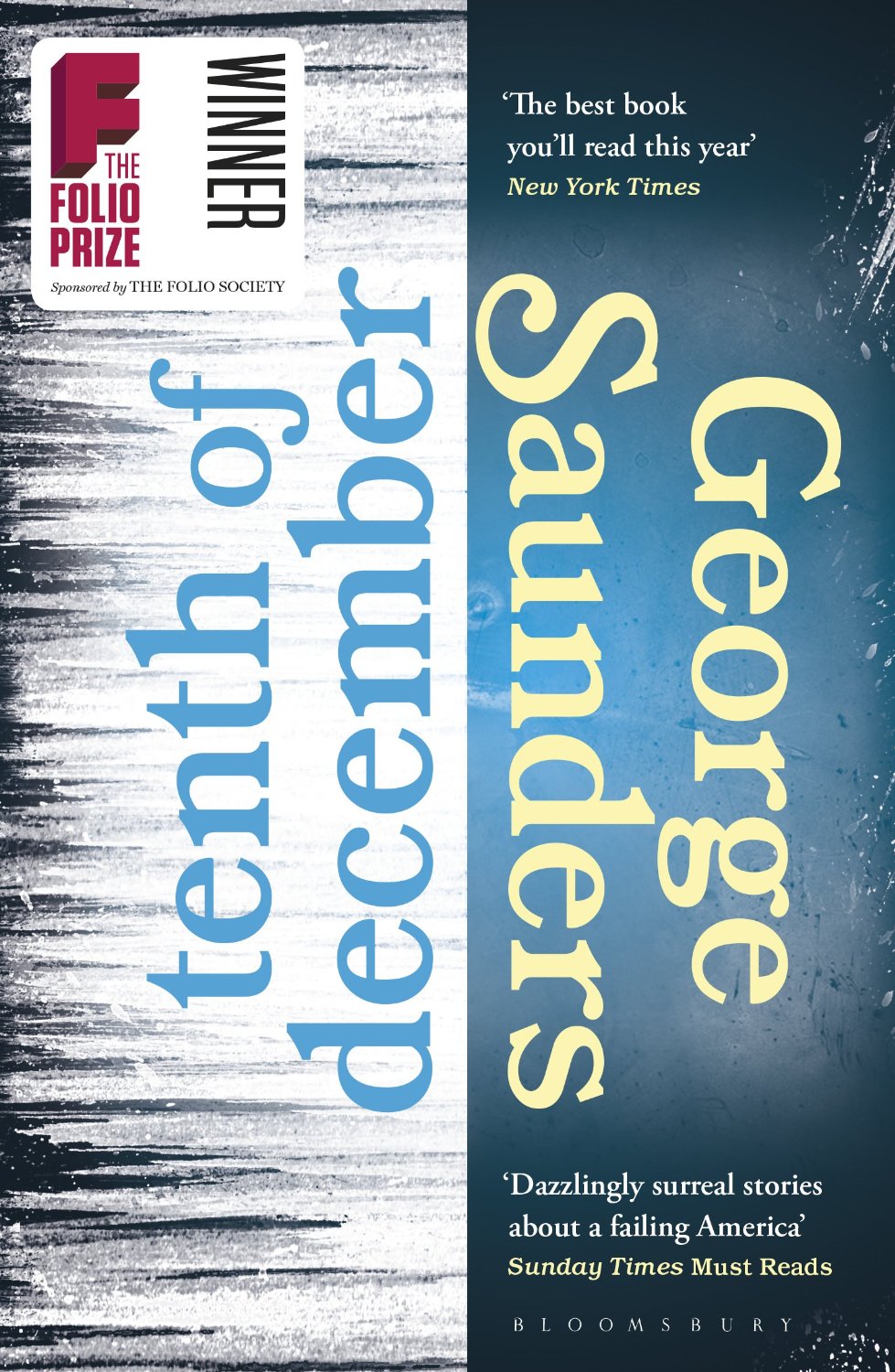
photo by Wolfgang Josten
In Your Dreams: Fantasy Women
in George Saunders’ Tenth of December
by Juliet West
I’ve been writing a novel, and reading novels, and so for several months I’ve been away from short stories. I missed them. When George Saunders won the 2014 inaugural Folio Prize for his collection Tenth of December, it was the prompt I needed to reacquaint myself with short fiction. I was delighted that a short story writer had won this prestigious literary prize, and with such universal plaudits: ‘Dazzlingly surreal’, ‘Riotously imaginative’, ‘The best book you’ll read this year’.
I’d read only one Saunders story before – ‘Puppy’ in the anthology The Book of Other People (ed. Zadie Smith) – but this was many years ago, and I couldn’t wait to immerse myself in the American writer’s most recent collection. I read the stories quickly, over a warm spring weekend. I marvelled at the breakneck prose, the dark humour, the satire on Western consumerism. Yet, as I read, I began to experience an increasing sense of unease. At times, I felt as if I had landed in the fantasy world of a deviant male adolescent, in which women and girls regularly appeared as sexualised, victimised and sometimes abused characters.
In the first story, ‘Victory Lap’, an awkward teenage boy rescues his beautiful fourteen-year-old neighbour from the clutches of a sexual predator; in ‘Escape from Spiderhead’, a prisoner is drip-fed an aphrodisiac (‘Vivistif’) which allows him to have sex six times in one day, with two different female prisoners; ‘The Semplica Girl Diaries’ is a disturbing tale in which vulnerable young immigrant women are strung up on high  wires to provide garden ornaments; ‘My Chivalric Fiasco’ describes a subservient wife who is raped by her boss, ‘peasant skirt up around her waist’.
wires to provide garden ornaments; ‘My Chivalric Fiasco’ describes a subservient wife who is raped by her boss, ‘peasant skirt up around her waist’.
True, there were also some stronger female characters, such as the formidable Ma in ‘Home’, and Molly, the practical, loving wife in the title story ‘Tenth of December’. Yet by the time I reached these stories, which appeared towards the end of the collection, I felt somehow sullied by what had come before.
Lighten up, I told myself. Don’t be so over-sensitive. It’s satire, it’s fine. Saunders is trying to subvert sexism by portraying women in this way. It’s all part of his genius, geddit? To reassure myself, I read interviews with Saunders, and watched his speech to Syracuse University students on YouTube, in which he displays an impeccable social conscience and exhorts students to ‘try to be kinder’. Saunders came across as a thoughtful, funny and philosophical man. A man with a wife and two daughters. It would be insane to accuse the guy of a negative attitude towards women. Wouldn’t it?
The more I considered my response, the more I realised I was making the mistake of confusing the author with his work. I needed to forget about Saunders, the writer, and look at the words on the page. If I felt uneasy, there had to be a reason for that, and it was only by reading the stories again that I could begin to comprehend the reason.
I focused on the outlandish story ‘The Semplica Girl Diaries’. The spoiler is already very much out there, so you’ll forgive me for revealing that the Semplica Girls (SGs) are living women who are strung up on micro-wires to prettify the gardens of affluent neighbourhoods. Saunders has explained that the idea for the story came to him in a dream. “I looked into the yard, and I saw a row of what I understood in the dream logic to be third-world women who had a wire through their heads,” he said in an interview with The New York Times Magazine.
The bizarre set-up undoubtedly had something to say about the ludicrous consumerism of western society, and the vile logic of a keeping-up-with-the-Joneses mentality. The story was intended to be unsettling and creepy. Yet for all this, there was something titillating about the girls’ presence, the way the SGs’ maintenance team would come three  times a day ‘to give SGs meals/water, take SGs to SmallJon in back of van, deal with feminine issues etc. etc.’ I did find the story creepy, absolutely, but not in a good way. I wanted only to escape this dream, because it struck me as, frankly, a little pervy.
times a day ‘to give SGs meals/water, take SGs to SmallJon in back of van, deal with feminine issues etc. etc.’ I did find the story creepy, absolutely, but not in a good way. I wanted only to escape this dream, because it struck me as, frankly, a little pervy.
I have no agenda here, no anti-man axe to grind. I don’t have a preference for male or female authors. Richard Yates and Colm Tóibín are two of my favourite short story writers, and they write about women brilliantly. I have no problem with the fantastic or the surreal in short stories either; contemporary authors Adam Marek and Nicholas Royle, for example, have consistently amazed and inspired me with their weird imaginings.
It just seemed to me that, in Tenth of December, the balance was all wrong. Women were all too frequently cast in sexual or helpless roles, albeit in surreal or dystopian settings in which, it could be argued, the normal rules of taste or decency need not apply. I doubted very much this was intentional sexism, but it felt like sexism nonetheless.
So, would I recommend Tenth of December? At the risk of appearing contrary, I have to say that I would. It is undeniably an engrossing collection that is affecting on many levels. Class conflict, consumerism, parental angst – all are exposed in stories that are sometimes poignant and frequently hilarious. Despite my misgivings, there was still much to enjoy. I laughed a lot at passages such as this from the excellent story ‘Home’, narrated by a war veteran who comes home to find his mother about to be evicted by a rent-collector:
The man, though low-slung and fat, was admirably bold. He went inside the house and came out carrying the TV with a bored look on his face, like it was his TV and he preferred it in the yard.
And although Saunders’ prose is often fractured, even abbreviated, there are occasional flashes of lyricism which offset the wise-cracking style, for example, in the final lines of this passage, taken again from ‘Home’:
“Mike?” he said. “Can I come in?” I said. “I think I have to say no to that,” he said. “I’d like to see the kids,” I said. “Past midnight,” he said. I had a pretty good idea he was lying. Were stores open past midnight? Still, the moon was high and there was something moist and sad in the air that seemed to be saying, Well, it’s not early.
The title story, ‘Tenth of December’, is genuinely moving. A suicidal cancer patient finds his fate bound up with the survival of a lonely boy who is out hunting imaginary beasts in a snow-bound landscape. The story is rooted in realism, yet the dual narratives weave together in a dreamlike and almost hallucinatory fashion, delivering a powerful meditation on death and regret.
There’s no doubt that this is a highly entertaining and original collection, and it’s impossible not to be impressed by Saunders’ wit and darkly inventive prose. I would have enjoyed it more, however, without the occasional sensation that I was waking up in a teenage boy’s wet dream.
~
 Juliet West’s debut novel, Before the Fall, was published in May 2014 by Mantle/Macmillan. A graduate of the Chichester University MA in Creative Writing, Juliet’s poetry and short stories have been published in various magazines and anthologies including The French Literary Review, The Sunday Times online magazine and Murmurations (Two Ravens Press).
Juliet West’s debut novel, Before the Fall, was published in May 2014 by Mantle/Macmillan. A graduate of the Chichester University MA in Creative Writing, Juliet’s poetry and short stories have been published in various magazines and anthologies including The French Literary Review, The Sunday Times online magazine and Murmurations (Two Ravens Press).

